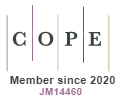School inclusion in pandemia: stereotypes and other barriers
DOI:
https://doi.org/10.5585/40.2022.20618Keywords:
school inclusion, remote education, critical theoryAbstract
This study aims to analyze the schooling of people with disabilities during the pandemic, through five testimonies about how the school proposals are reaching them, as well as these proposals, or the lack of them, impact on their school learning. Data were collected through interviews using a messaging application. The framework that underlies the analysis is the critical theory of society, especially through the concept of stereotype. The analysis of the data shows that the main barrier of the students is not the disability, nor the degree of their commitment, and reinforces the idea that the presence of the students with disabilities makes it possible to raise the need to review their practices at school, which it can contribute to the learning of all students, but these students are often neglected, due to a posture that crystallized exclusionary practices, consolidating barbarism, through a society that does not value humanization processes. In this perspective, we can say, in addition to school inclusion brings us important elements to provide education for all, situations that arise in the context of the pandemic bring new elements to this debate.
Downloads
References
ADORNO, T.W. et al.. Estudos sobre a Personalidade Autoritária. São Paulo: Unesp, 2019.
BRASIL. Ministério da Educação e Cultura. Resolução CNE/CEB nº 4, de 2 de outubro de 2009 - Institui Diretrizes Operacionais para o Atendimento Educacional Especializado na Educação Básica, modalidade Educação Especial. Disponível em: http://portal.mec.gov.br/dmdocuments/rceb004_09.pdf. . Acesso em 02/03/2021.
BRASIL. Planalto. Decreto nº 6.949, de 25 de agosto de 2009 – Promulga a Convenção Internacional sobre os Direitos das Pessoas com Deficiência e seu Protocolo Facultativo, assinado em Nova York, em 30 de março de 2007. Disponível em: http://www.planalto.gov.br/ccivil_03/_ato2007-2010/2009/decreto/d6949.htm. Acesso em 23/03/2021.
BRASIL . Planalto. Lei nº 13.143 de 06 de julho de 2015, que institui a Lei Brasileira de Inclusão das Pessoas com Deficiência (Estatuto da Pessoa com Deficiência). Disponível em: http://www.planalto.gov.br/ccivil_03/_ato2015-2018/2015/lei/l13146.htm . Acesso em 23/03/2021.
BRASIL. Planalto. Decreto nº 10.502, de 30 de setembro de 2020, que Institui a Política Nacional de Educação especial: Equitativa, Inclusiva e com Aprendizado ao Longo da Vida. Disponível em: https://www.in.gov.br/en/web/dou/-/decreto-n-10.502-de-30-de-setembro-de-2020-280529948. Acesso em 16/10/2020.
BRASIL. Planalto. Lei nº 14.113 de 25 de dezembro de 2020, que Regulamenta o Fundo de Manutenção e Desenvolvimento da Educação Básica e de Valorização dos Profissionais da Educação (Fundeb), de que trata o art. 212-A da Constituição Federal; revoga dispositivos da Lei nº 11.494, de 20 de junho de 2007; e dá outras providências. Disponível em: https://www.in.gov.br/en/web/dou/-/lei-n-14.113-de-25-de-dezembro-de-2020-296390151. Acesso em: 02/03/2021.
COSTA, Valdelúcia Alves da. Educação e formação: inclusão na escola pública. Revista Entreideias. Salvador, v.4, n. 1, p. 51-70, jan./jun. 2015.
CROCHÍK, José Leon. Preconceito, indivíduo e cultura. São Paulo: Casa do Psicólogo, 2011.
CROCHÍK, José Leon. Preconceito, indivíduo e sociedade. Temas em Psicologia. Ribeirão Preto, vol.4, nº 3, p. 47-70, dez. 1996.
PILETTI, Ana Cristina da Costa. Entre os fios e o manto: tecendo a inclusão escolar. São Paulo: Edições Loyola, 2014
Downloads
Published
How to Cite
Issue
Section
License
Copyright (c) 2022 Dialogia

This work is licensed under a Creative Commons Attribution-NonCommercial-ShareAlike 4.0 International License.






